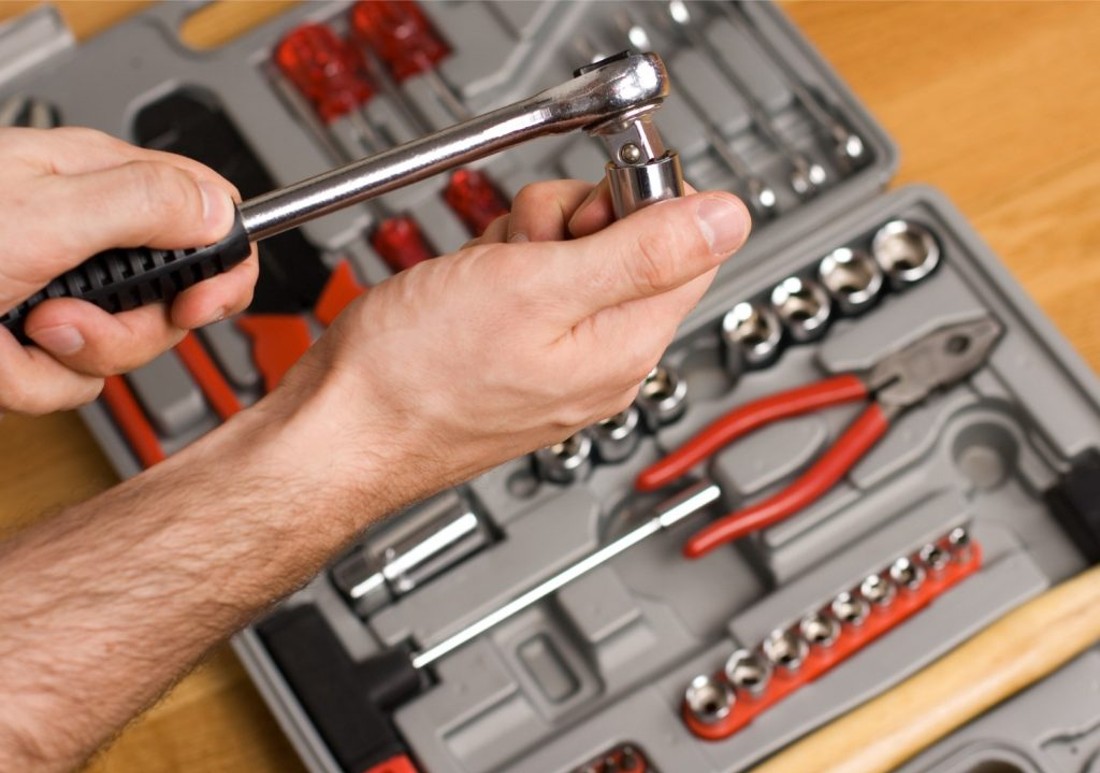Socket Wrench vs. Ratchet: What Is the Difference?

In DIY and mechanical work, the choice of tools can often be the difference between a job well done and one fraught with frustration. Two reliable contenders in every toolbox are the socket wrench and the ratchet, each with unique advantages and use cases. Both manipulate nuts and bolts, yet they do so in distinct ways. In this blog post, we’ll delve into the contrasting characteristics of socket wrenches and ratchets, shedding light on when and where to employ each tool effectively.
These humble yet indispensable tools, often taken for granted, hold the power to simplify complex tasks and elevate the efficiency of your projects. Whether you’re a seasoned DIY enthusiast or just beginning your journey into handy work, understanding the disparities between socket wrenches and ratchets is crucial for success. So, let’s embark on a journey through the realm of fastening and loosening, exploring the intricacies of these vital tools.
Socket Wrench: The Versatile Workhorse
A socket wrench, often referred to simply as a “socket,” is a hand tool with a handle and a socket attachment at one end. The socket attachment fits snugly over the head of a nut or bolt, allowing you to apply torque to turn it. Socket wrenches come in various sizes, typically measured in inches or millimeters, to accommodate different nut and bolt sizes.
Socket wrenches are versatile tools with several key features and advantages. One of their primary benefits is their versatility, as you can employ them in various tasks, from automotive repairs to furniture assembly. Their diverse socket sizes allow them to handle various projects using a single tool.
Additionally, socket wrenches provide precise torque control, making them ideal for tasks requiring specific tightening or loosening measurements. Durability is another standout feature, as high-quality socket wrenches can endure years of heavy use without significant wear and tear.
Furthermore, they are cost-effective, often being more affordable than a ratcheting wrench set, making them a budget-friendly choice for beginners or occasional DIY enthusiasts. Finally, socket wrenches operate manually, eliminating the need for electricity or batteries, which renders them suitable for remote locations or situations where power tools are impractical.
Despite their versatility and durability, socket wrenches do have some limitations. One of the main drawbacks is that they require continuous back-and-forth motion to tighten or loosen fasteners, which can be time-consuming and tiring, especially for larger or stubborn bolts.
Ratchet: The Speedy Contender
A ratchet is another essential tool in fastening and loosening nuts and bolts. A ratchet features a handle with a built-in ratcheting mechanism, unlike a socket wrench. This mechanism allows you to turn the fastener without lifting and repositioning the tool after each rotation. Ratchets are commonly used with socket attachments, similar to socket wrenches.
Ratchets offer a range of key features and advantages that make them invaluable tools in various applications. Efficiency is a primary characteristic, as ratchets have a ratcheting mechanism that allows users to maintain contact with a fastener while turning it back and forth.
This feature significantly speeds up the process compared to traditional socket wrenches. Additionally, ratchets offer significant ease of use, requiring less physical effort. This makes them ideal for tasks involving multiple fasteners or extended work periods, reducing user fatigue.
One of the standout benefits of ratchets is their suitability for tight or confined spaces, where a socket wrench may not fit comfortably. Their compact size and ratcheting action enable them to maneuver and operate efficiently in such environments. Furthermore, ratchets are highly adaptable and you can use them with various socket attachments and extensions. This adaptability allows users to reach bolts in various positions and depths, enhancing their versatility and utility in different scenarios. Overall, ratchets provide efficiency, ease of use, suitability for tight spaces, and adaptability, making them indispensable tools in the toolkit of both professionals and DIY enthusiasts.
While ratchets excel in many areas, they do have some limitations. They may not offer the same level of torque control as socket wrenches, making them less suitable for applications that require precise torque settings. Additionally, ratchets can be more expensive than socket wrenches, especially when you factor in the cost of additional socket attachments and extensions.
Choosing the Right Tool for the Job
So, which tool should you choose for your project? The decision between a socket wrench and a ratchet often comes down to the specific task and your preferences. Use a socket wrench when you need precise torque control, work on various projects, or have limited budget constraints. Socket wrenches are a great all-around option for DIYers and professionals alike.
Opt for a ratchet when you want to maximize efficiency, are dealing with tight spaces, or have a significant amount of fasteners to work on. Ratchets excel in situations where speed and ease of use are essential.
In many cases, having both tools in your toolbox can provide the versatility and efficiency needed to tackle a wide range of projects. This way, you can choose the tool that best suits the task and ensure that your DIY endeavors are as smooth and successful as possible.
Final Note
Socket wrenches and ratchets are both indispensable tools for anyone who frequently works with nuts and bolts. Understanding their differences and knowing when to use each can make your DIY projects more efficient and enjoyable. So, whether you’re building a piece of furniture, fixing your car, or embarking on any other DIY endeavor, these tools will help you get the job done right.